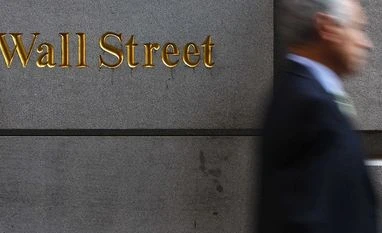Wall Street was lower on Friday after a weaker-than-expected September jobs report indicated that the US Federal Reserve would be cautious about raising interest rates.
US employment growth slowed for the third straight month in September, with employers adding 156,000 jobs, a report by the Labor Department showed. Economists polled by Reuters had expected 175,000.
The rate of unemployment climbed to 5 per cent from 4.9 per cent in August, though the increase was driven by Americans rejoining the labor force.
Hourly wages for private sector workers rose 2.6 per cent, compared with last year, and were in line with economists' expectations.
"The uptick in both wage growth and the participation rate is good news for the economy," said Mohamed El-Erian, Allianz's chief economic adviser.
"But it occurred in the context of a slight shortfall in job creation, thus failing to make a compelling economic case for a Fed rate hike," he added.
More From This Section
After the report, traders cut the odds of a November rate increase to 10 per cent from 15.5 per cent. However, the CME Group's FedWatch tool showed a 66 per cent chance of a move in December.
Cleveland Fed President and voting member Loretta Mester told CNBC that the jobs number was "solid" and that she continues to believe it appropriate for the central bank to raise rates.
The dollar, which had risen as much as 0.43 per cent, reversed course to fall 0.3 per cent.
Investors will now focus on Fed officials including Vice Chairman Stanley Fischer, considered an interest rate hawk, and Board Governor Lael Brainard, who has been more dovish, for their take on the labor market.
At 9:54 am ET (13:54 GMT) the Dow Jones industrial average was down 41.98 points, or 0.23 per cent, at 18,226.52.
The S&P 500 was down 4.7 points, or 0.22 per cent, at 2,156.07.
The Nasdaq Composite was down 11.86 points, or 0.22 per cent, at 5,294.99. Eight of the 11 major S&P 500 indexes were higher, led by a 1.55 per cent rise in the rate-sensitive utilities index.
Sterling plunged as much as 10 cents to $1.1491 in just a few minutes in Asia, a "flash crash" that fueled concerns about the vulnerability of the British currency.
Gap rose 6.7 per cent after the clothing retailer reported a lower-than-expected fall in comparable sales for September.
Cruise operator Carnival Corp was down 1.9 per cent as a major hurricane hits Florida, threatening travel.
Declining issues outnumbered advancing ones on the NYSE by 1,452 to 1,193. On the Nasdaq, 1,487 issues fell and 845 advanced.
The S&P 500 index showed three new 52-week highs and two new lows, while the Nasdaq recorded 27 new highs and 16 new lows.
)